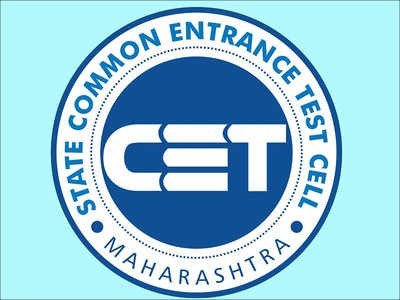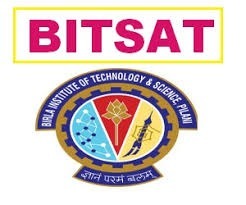

JEE MAINS RESULT 2023 (ANNOUNCED): Download Score Card
JEE MAINS RESULT 2023 (ANNOUNCED): Download Score Card
JEE Mains 2023: The result for JEE Mains 2023 has been announced by National Testing Agency has (NTA) on the official Website( https://jeeMains.nta.nic.in/ ). The JEE mains result for Session 1 was declared on February 6, 2023 at 11:58 PM and JEE mains session 2 result is yet to be declared. As per the recent notification published by national testing agency (NTA).
About National Testing Agency (NTA)
The Ministry of Education (MoE), Government of India (GoI) has established the National Testing Agency (NTA) as an independent, autonomous, and self-sustained premier testing organization under the Societies Registration Act (1860) for conducting efficient, transparent, and international standardised tests in order to assess the competency of candidates for admission to premier higher education institutions with a mission to improve equity and quality in education by developing and administering research-based valid, reliable, efficient, transparent, fair, and international level assessments.
About JEE Mains 2023
The Joint Entrance Examination, JEE (Main) comprises two papers. Paper 1 is conducted for admission to Undergraduate Engineering Programs (B.E/B.Tech.) at NITs, IIITs, other Centrally Funded Technical Institutions (CFTIs), and Institutions/Universities funded/recognized by participating State Governments. JEE (Main) is also an eligibility test for JEE (Advanced), which is conducted for admission to IITs. Paper 2 is conducted for admission to B. Arch and B. Planning courses in the country.
Important Dates for JEE mains 2023
| EVENTS | DATES |
| Session 1: JEE (Mains) 2023 | |
| Application Form ( Online) | 15 December 2022 to 12 January 2023 |
| Announcement of the City of Examination | Second week of January 2023 |
| Downloading Admit Cards from the NTA website | Third week of January 2023 |
| Dates of Examination | 24, 25, 27, 28, 29, 30, 31 January 2023 |
| JEE MAIN (2023): FINAL ANSWER KEYS Paper 1 (B.E. / B.Tech) | Download Link for Final Answer Kay |
| Declaration of Result | Download Score Card |
Pattern of Examination for JEE (Mains)
JEE (Mains) 2023 is one of the toughest exams in India, to crack the exam, students must have thorough knowledge of the examination pattern. The detailed knowledge of examination patterns will help students achieve a good score.
Paper1: B.E./ B. Tech. in Computer Based Test (CBT) mode:Subject-wise distribution of Questions, Total Number of Questions, and Marks
| Subject | Section A | Section B | Marks |
| Mathematics | 20 | 10 | 100 |
| Physics | 20 | 10 | 100 |
| Chemistry | 20 | 10 | 100 |
Note: Each Subject will have two sections. Section A will be of Multiple-Choice Questions (MCQs) and Section B will contain Questions whose answers are to be filled in as a numerical value. In Section B, candidates have to attempt any 05 (five) questions out of 10. There will be negative marking for both Section A and Section B. For each question in Section B, a candidate has to enter the correct integer value of the answer using the mouse and the on-screen virtual numeric keypad in the place designated to enter the answer. For Section B, the answer should be rounded off to the nearest integer.
Paper 2A (B. Arch): Mathematics (Part-I) and Aptitude Test (Part-II) in Computer Based Test (CBT) mode only and Drawing Test (Part-III) in Pen and Paper Based (offline) mode, to be attempted on a drawing sheet of A4 size.
| Subject | Number of Questions | Marks |
| Part I: Mathematics | 20* (Section A) and 10* (Section B) | 100 |
| Part II: Aptitude Test | 50 | 200 |
| Part III: Drawing Test | 02 | 100 |
| Total | 82 | 400 |
Note: 20 questions will be MCQs and 05 (five) questions will have answers to be filled as a numerical value. There will be negative marking for both Section A and Section B. For each question in Section B, a candidate has to enter the correct integer value of the answer using the mouse and the on-screen virtual numeric keypad in the place designated to enter the answer. The answer should be rounded off to the nearest integer.
Marking Pattern for JEE (Mains)
| Marking Scheme for MCQs | Correct Answer or the Most Appropriate Answer (+4) Four MarksIncorrect Answer Minus one mark (-1)Unanswered / Marked for Review No mark (0) |
| Marking Scheme for questions for which the answer is a Numerical value | Correct Answer Four marks (+4)Incorrect Answer Minus one mark (-1) Unanswered / Marked for ReviewNo mark (0) |
| Method of determining merit | Conversion of the raw score in Mathematics, Physics, Chemistry, and the conversion of the total into NTA scores. Overall merit shall be prepared by merging NTA scores of all shifts of all days. |
| Method of resolving ties | Tie between candidates obtaining equal Total NTA scores in Paper 2A: B. Arch will be resolved in the following manner: 1. NTA score in Mathematics, followed by 2. NTA score in Aptitude Test, followed by 3. NTA score in Drawing Test, followed by 4. Candidate with less proportion of a number of attempted incorrect answers and correct answers in all the subjects in the Test, followed by 5. Candidate with less proportion of a number of attempted incorrect answers and correct answers in Mathematics (Part-I) in the Test, followed by 6. Candidate with less proportion of a number of attempted incorrect answers and correct answers in Aptitude Test (Part-II) in the Test followed by 7. Older in Age followed by 8. Application Number in ascending order |
Syllabus of the Examination
Syllabus for Paper-1 (B.E./B.Tech.)- Mathematics, Physics, and Chemistry :
Physics Syllabus
| Physics and Measurement | Thermodynamics |
| Kinematics | Rotational Motion |
| Gravitation | Work and Energy |
| Power | Properties of Solids and Liquids |
| Laws of Motion | Electronic Devices |
| Oscillations | Waves |
| Current Electricity | Electromagnetic Waves |
| Communication Systems | Electromagnetic Induction |
| Magnetism | Alternating Currents |
| Magnetic Effects of Current | Kinetic Theory of Gases |
| Dual Nature of Matter | Radiation |
| Atoms | Nuclei |
| Optics | Electrostatics |
Chemistry Syllabus:
| Physical Chemistry | |
| Basic Concepts in Chemistry | States of Matter |
| Chemical Bonding | Atomic Structure |
| Molecular Structure | Solutions |
| Redox Reactions | Chemical Thermodynamics |
| Equilibrium | Electrochemistry |
| Surface Chemistry | Chemical Kinetics |
| Organic Chemistry | |
| Polymers | Principles of Practical Chemistry |
| Organic Compounds – Characterisation and Purification | Oxygen, Halogens, and Nitrogen Organic Compounds |
| Hydrocarbons | Biomolecules |
| Basic Principles of Organic Chemistry | Chemistry in Everyday Life |
| Inorganic Chemistry | |
| Hydrogen | Classification of Elements |
| Periodicity | Alkali metals |
| Group 13 to Group 18 Elements | Alkaline Earth Metals |
| D and f Block Elements | Coordination Compounds |
| Environmental Chemistry | Isolation of Metals |
Maths Syllabus
| Sets, Relations, and Functions | Complex Numbers |
| Determinant | Quadratic Equations |
| Matrices | Permutations Combinations |
| Mathematical Induction | Sequence Series |
| Binomial Theorem | Limits and Continuity |
| Differentiability | Statistics |
| Differential Equations | Integral Calculus |
| Trigonometry | Vector Algebra |
| Coordinate Geometry | Mathematical Reasoning |
| 3D Geometry | Probability |
Powered by Froala Editor








Comment (0)
Leave a comment